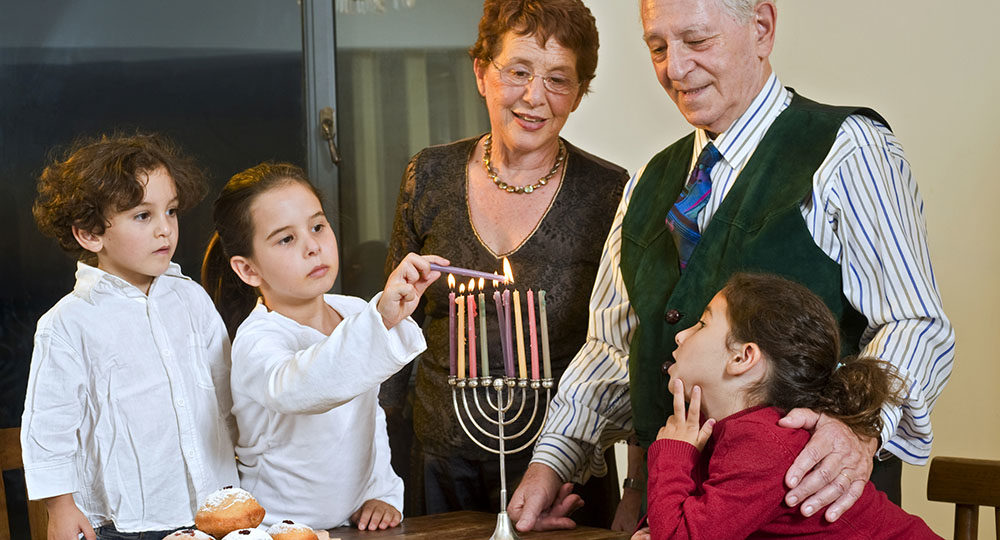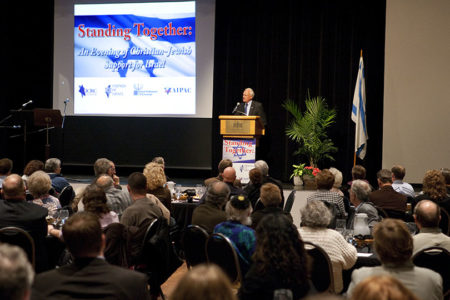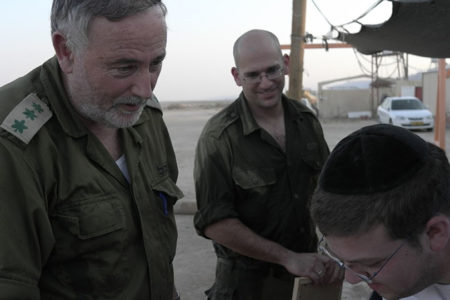Christian Love and Latkes
A few weeks before Easter this year, Susan was playing a video game in the privacy of her own home. She had received an opponent by sending her signal out into cyberspace. She didn’t know if she was playing against a man or woman, boy or girl.
Things were going well until there was a lull in the action, and her opponent asked, “Do you want to hear a joke?”
“Sure,” she replied.
The “joke” turned out to be so extremely anti-Semitic that Susan, who is 23, was shocked. She barely knew what to do. “That’s horrible!” she replied. “I had family who died in the Holocaust, and I don’t think that’s funny!”
To which the person on the other end replied, “That’s what they get for killing Christ.”
I was appalled when I heard this story. As a pastor, I have tried to lead my congregants to love the Jewish people and have urged them to understand Jewish history, culture, customs, and worship.
That’s why we celebrate holidays that some churches might find unusual, and God has used these events to produce a flock that loves Israel and understands its biblical place in God’s plan for the ages.
I would like to think that no one in my church would call the Jewish people “Christ-killers.” Jesus said, “I lay down My life that I may take it again. No one takes it from Me, but I lay it down of Myself. I have power to lay it down, and I have power to take it again” (Jn. 10:17–18). No one killed Christ. He willingly gave His life as a final sacrifice for sin.
My church observes Passover. Tom Simcox, with The Friends of Israel, came to my church three years in a row to host a Passover seder. I became so engrossed in the celebration and so fascinated by the details that I wanted to lead one myself. Tom trained me, and we now host our own Passover observance annually.
Church members organize, cook, and promote the event, to which we invite the community. We learn and grow together as we walk step-by-step through the details and the seder dinner. We learn as we eat the bitter herbs and unleavened bread. The children laugh and shout as they search for the afikomen. We reflect as we drink the four cups of sanctification, praise, redemption, and acceptance.
Together we have come to see the Messiah in the Passover celebration. Our own monthly Lord’s supper observance has become more meaningful, as we consider the traditions and culture of the Passover table.
Our church has celebrated Purim. Purim commemorates the deliverance of the Jewish nation from destruction at the hands of the ancient Persians. Our understanding of the book of Esther has deepened through this celebration. With Tom’s help, congregants organized, cooked, and invited the community. People in my church baked hundreds of hamantaschen (triangular, fruit-filled pastries). They even produced a play based on the story of Queen Esther, Mordecai (hero of the book of Esther), and the wicked Haman.
The children especially enjoyed this celebration, which has games and events just for them. We have even learned a few tips about Purim parties from local synagogues. It is a great time of rejoicing, and we have developed a greater appreciation for the divine preservation of the Jewish people through the ages.
We’ve also celebrated Hanukkah, called the Feast of Dedication in John 10:22. Jesus participated in this tradition: “Now it was the Feast of Dedication in Jerusalem, and it was winter. And Jesus walked in the temple, in Solomon’s porch” (vv. 22–23).
The menorah lights, the holiday songs, and the story of the Maccabean revolt against the evil Seleucid ruler Antiochus IV in the second century B.C. teach us Jewish history and culture and remind us how important it is to stand for truth. The latkes (potato pancakes) fried in oil remind us that there was found oil for the Temple lamp sufficient for only one day. Jewish tradition states that the oil lasted eight days until more was ready.
Folks in my church handmade hundreds of latkes, and we enjoyed the fellowship of eating them together (with applesauce and sour cream, of course!) and learning about this important intertestamental period.
I have found that there’s no better way to help a congregation understand and appreciate the Old Testament than by preparing for and conducting these events in our church.
A few of us also have celebrated Tu B’Shevat. Since the 15th century A.D., Tu B’Shevat has commemorated the coming of spring in the Holy Land. It strengthens the ties between Israel and Jewish people living in other countries and is a demonstration of loyalty to the Holy Land.
Children in my church provided funds to plant 100 trees in Israel. One of my sons, who was eight at the time, presented the check to a rabbi who is a friend of mine. He nearly wept as he accepted it and bent to kiss my son on the cheek. It was a tender moment for all of us, as well as a tangible statement of our church’s solidarity with Israel and its children.
The epitome of all of these experiences has been my involvement in Thank God for Israel events. I have participated in them in banquet rooms and in houses of worship. They have been a highlight of my ministry, as I am able to communicate my gratitude to and love for the Jewish people. Some years ago, Tom Simcox and I organized a Thank God for Israel event at a local synagogue. For generations Christians entered Jewish homes and houses of worship to torture and destroy. We had the privilege to enter to express gratitude, support, and love.
A few years ago I had lunch with an elderly Jewish friend. I invited him to visit our church and assured him he would be warmly received. His expression became grave as he leaned over the table and looked me in the eye. With extreme seriousness he asked, “Don’t you think I’m a ‘Christ-killer’? Don’t you consider all Jews ‘Christ-killers’?”
“Absolutely not!” I replied. “According to the New Testament, Jesus willingly surrendered His life. He died as our final sacrifice for sin. No, I do not consider you a ‘Christ-killer.’ I consider you a friend.”
My entire church came to love him dearly, and I was privileged to speak at his funeral.
It is a tragedy today that so many churches fail to educate their congregations about Jewish history and culture. They miss out on the joy and richness that can be theirs when studying the Old Testament. God is true to His Word. As He promised Abraham, “I will bless those who bless you, and I will curse him who curses you; and in you all the families of the earth shall be blessed” (Gen. 12:3). We have truly been blessed.







